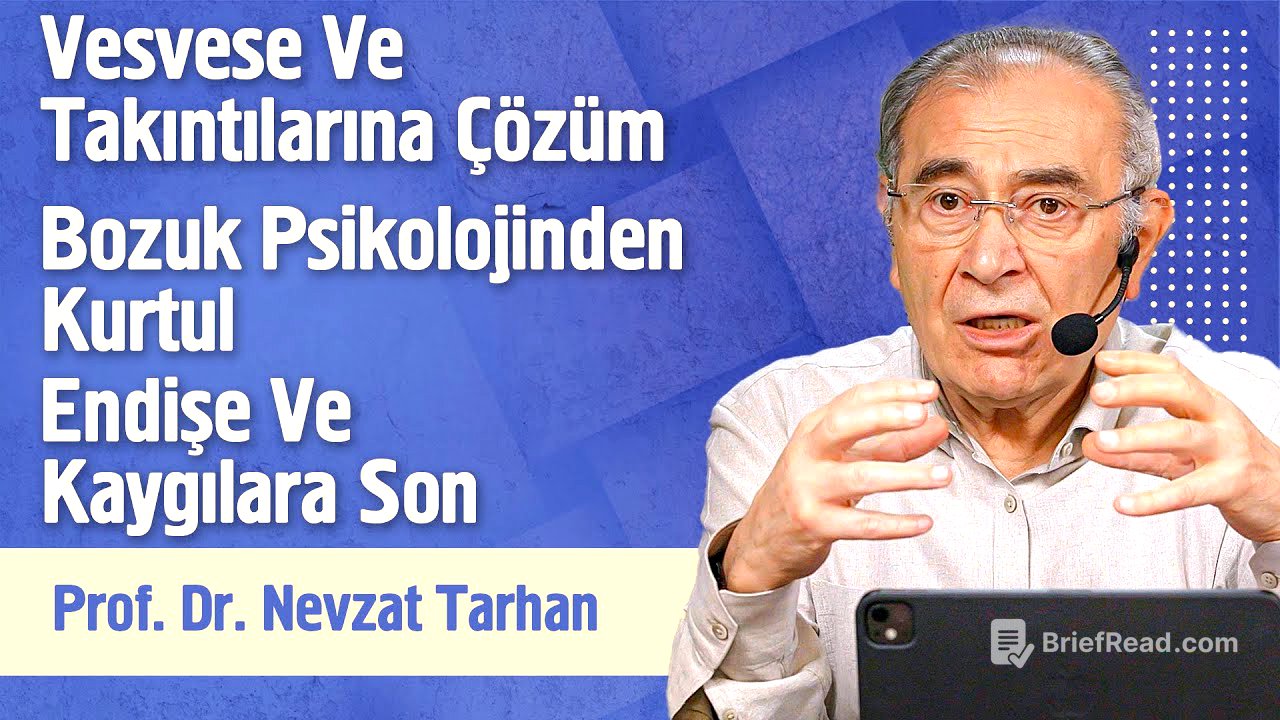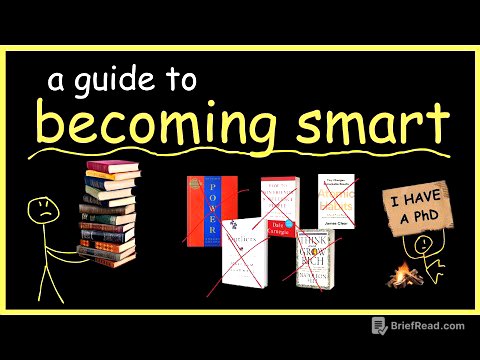TLDR;
This video explores solutions to delusions and obsessions, anxiety management, recognizing psychological distress, and understanding concepts like ego and narcissism. It emphasizes the importance of managing thoughts, emotions, and stress through flexible thinking, healthy communication, and problem-solving skills. The video also touches on the role of intention, free will, and the balance between pleasure and meaning in achieving psychological well-being, drawing from both psychological theories and spiritual perspectives.
- Managing delusions and obsessions involves analyzing thoughts, changing focus, and developing strategies.
- Effective anxiety management includes adopting a resilient "Type B" personality and balancing coping, communication, and problem-solving styles.
- Recognizing psychological distress involves being aware of feelings like anxiety, boredom, and depression, and seeking help if these persist.
- Understanding and managing egoism is crucial for mental health, involving self-awareness, intention, and aligning actions with divine approval.
Giriş [0:00]
The video begins by highlighting the increasing rates of antidepressant use in America and Turkey, pointing to potential societal issues. It suggests that managing anxiety involves controlling information traffic in the brain, similar to how police manage traffic congestion. The speaker introduces three types of stress management styles: Type A (anxious and negative), Type C (carefree and careless), and Type B (resilient and flexible), advocating for the latter. The introduction also touches on the importance of investing in people's mental health.
Vesvese Ve Takıntıya Bir Çözümünüz Var mı ? [1:33]
This chapter addresses solutions for delusions and obsessions, distinguishing between mild cases and those requiring medication. For simple delusions, analyzing the thought and changing the subject can be effective. The speaker uses the analogy of dealing with an uninvited guest to illustrate how to manage intrusive thoughts. The key is to recognize obsessions as ridiculous and meaningless, block the roads leading to them in the brain, and change the focus of attention. Overcoming delusions can lead to increased psychological resilience and ego strength. Flexible thinking and strategy development are essential, using multiple approaches to problem-solving.
Kaygılarımı Nasıl Yönetebilirim ? [5:35]
The discussion shifts to anxiety management, noting the high rates of antidepressant use in countries with wild capitalism. The speaker emphasizes the importance of primary, secondary, and tertiary protections for mental health. Managing anxiety involves understanding and adapting one's coping style, communication style, and problem-solving style. The speaker advocates for a balanced approach, comparing it to riding a bicycle, where all three elements must be managed correctly to avoid falling. The chapter also describes three stress management styles: Type A (sponge-like), Type C (Teflon-like), and Type B (elastic and resilient), recommending the Type B personality for healthy stress management.
Psikolojimin Bozulduğunu Nasıl Anlarım ? Belirtileri Nelerdir ? [10:33]
This section focuses on recognizing signs of psychological distress, such as anxiety, boredom, depression, and depressive states. While a depressive state can last up to 3 days without being considered a disorder, persistent issues require treatment. The speaker uses the example of narcissistic individuals who seek constant applause and control, treating human relations as slave-master dynamics. The chapter also includes anecdotes illustrating egoism and the importance of self-awareness for psychological health. Modernism's focus on pleasure is contrasted with Aristotle's concept of "eudaimonic happiness," which is found in pursuing meaningful ideals and enduring hardship.
Ene, Enaniyet, Narsist, Ego Nedir? [15:45]
The final chapter explores the concepts of ego, narcissism, and self-awareness ("Ene"). It explains that "Ene" is a key to understanding divine names and the universe, enabling humans to answer ontological questions. The speaker discusses methods of reasoning, including deduction, induction, analogy, and fuzzy logic, highlighting their role in artificial intelligence and human cognition. Humans possess a unique self-consciousness that allows for mentalization and meaning production, distinguishing them from animals and individuals with autism. The chapter also touches on the nature of life, DNA, and the human ability to challenge God. It emphasizes the importance of intention, free will, and the struggle between good and evil within egoism. The speaker concludes by discussing the simulation metaphor for understanding fate and the need to use ego correctly to understand the messages of the creator.









